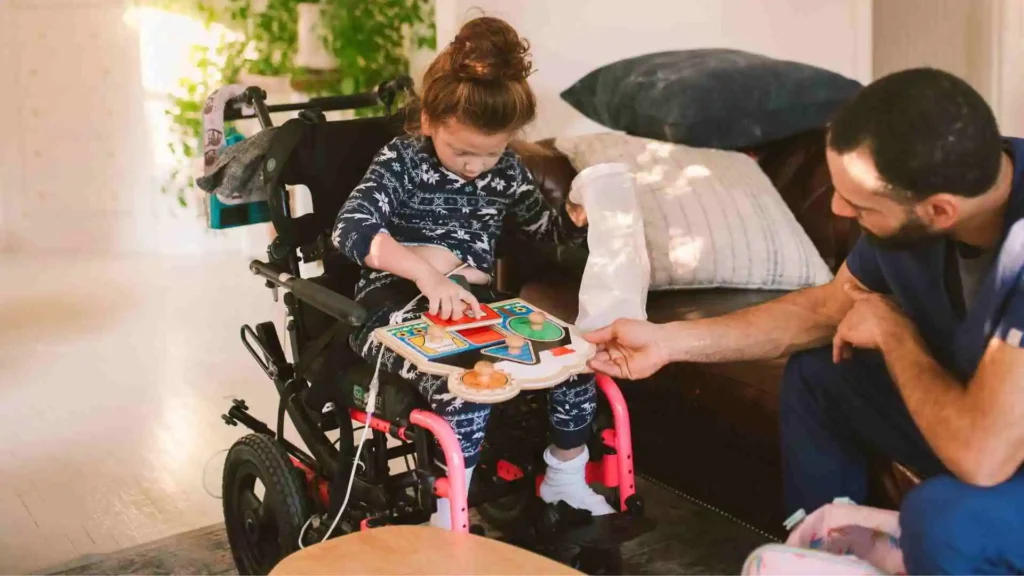How to Apply for Domiciliary Care Allowance in Ireland (2025)

Caring for a child with a disability requires the full attention of parents and guardians. In Ireland, there is a way to help guardians with a child with disabilities through the domiciliary care allowance. This guide will give you all the necessary information; it is simple, to the point, and easy to follow.
What is Domiciliary Care Allowance?
The DCA is a monthly payment to assist families caring for a child under 16 years of age who has a significant disability. The child must require additional care from a carer responsible for the child’s care. It must be significantly more careful than the child of the same age. This allowance acknowledges that full-time care is provided in a home situation.
The DCA is a payment part of Social Welfare Ireland. It aims to assist families providing demanding care work. The DCA is not dependent on your income. Social Welfare Ireland does not means-test the DCA. Because of this, both employed and unemployed carers may be eligible.
This payment helps reduce stress and provides financial stability. It acknowledges the unpaid work of carers. Without this allowance, many families would struggle.
Domiciliary Care Allowance eligibility
To qualify, you need to meet the following criteria:
- The child is under 16.
- The child has a significant disability.
- The child receives extra daily care.
- You care for the child at your home for at least 5 days a week.
- You and the child live in Ireland.
Eligibility is dependent on the care needs of the child. It is not dependent on a particular medical diagnosis. However, proper documentation is a prerequisite. Letters of support from a doctor, therapist, or other specialist can be tremendously helpful.

In some cases you may be granted a half-rate allowance. This relates to the child living away from home in a residential care situation. But spending at least two days each week at their family home. This may also apply to foster parents depending on the situation.
How to Apply for DCA
To apply for DCA, complete the Dom Care 1 form. This form is available online at MyWelfare.ie or at any Intreo Centre or social welfare branch.
You’ll need:
- Your and your child’s basic information
- A medical form filled out by your GP or specialist
- Letters from professionals (for example, from speech therapists, occupational therapists, school reports)
- A description of your child’s care needs in everyday life
This is a relevant part of the DCA application. You will need to write the details on how your child needs assistance. It includes help with dressing, feeding, getting around (mobility), communicating and emotional support. This is the most important part of the form. Don’t make the assumption that assessors know your situation and how it affects you day-to-day; be detailed.
You will receive a response to your application within 10-12 weeks. If the department needs further information, they will contact you. The decision is made by a medical assessor.
Understanding DCA Payment Rates
The existing DCA payment rates are:
- Full rate: €360 per month
- Half rate: €180 per month
This payment is made directly to your bank or post office account. The payments are paid on the 3rd Tuesday of every month.
As the payment is nontaxable, it does not affect most other payments you may be receiving. You can apply for a backdated payment if you can show you were entitled to it. But you were unable to apply sooner for medical or personal reasons. The backdating period is generally for six months.
Other Payments and Support Linked to DCA
Once you are in receipt of DCA, there are additional supports available. Below is a list of financial supports that you may consider applying for:
- Medical Card: Children are automatically provided with a medical card. The medical card provides the child with medical services, including doctors’ visits, hospital visits, care, and prescriptions.
- Carer’s Grant: The carer’s grant is a once-yearly, tax-free payment of €2,000. It is provided to DCA recipients in June each year.
- Carer’s Allowance or Carer’s Benefit: These are weekly payments for individuals providing full-time care to the child.
- Respite Care Grant: This grant is provided to the carer so they may take a break while providing care.
- Incapacitated Child Tax Credit: A tax relief provided to parents of dependent children with a disability.
- Housing Adaptation Grant: This is financial support to assist the family in making changes to their home, such as ramps or modifications to a bathroom.

These added supports may substantiate your child’s quality of life while relieving financial pressure on the family.
What Happens When Your Child Turns 16?
The DCA will cease on your child’s 16th birthday. However, there is a next step. You can apply for the Disability Allowance, which is a weekly payment for those aged 16 or older with a disability. The Disability Allowance is also means tested, so apply at least three months before your child turns 16 to avoid anything falling through the gaps.
While you are at this point, you should also review your eligibility for others. These include a Medical Card, carer’s allowance, and other relevant financial support, as this may also change based on your child’s new circumstances.
If Your Application is Denied
If your DCA application process is refused, do not panic. You have a right of appeal.
Here’s what you can do:
- Check the refusal letter carefully. Understand the reasons for the refusal of the application.
- Get stronger supporting documentation. For example, obtain updated letters from doctors or therapists.
- Submit your appeal within 21 days of the refusal.
You can also apply later on if your child’s condition has worsened or their need has increased. Also, a lot of families are eventually granted disability child allowance after they submit better evidence.
Real Stories and Community Support
Many parents are documenting their experiences in DCA Ireland. It provides suggestions, advice, and, most importantly, a form of emotional support.
- DCA Warriors (a Facebook group) is very active, supporting parents in completing documentation/travel letters and appeals.
- Citizens Information offers facilitated free guides.
- Financial Wellbeing and HSE services provide tailored advice.
- Local Family Resource Centres also may assist you with forms.
Speaking with other parents and families may provide you with a positive connection and may help normalise your position. Beyond support, it will also provide you with some practical tools to help boost your application.
Common Mistakes to Avoid
- Submitting incomplete application forms
- Leaving out aspects of daily care needs
- Forgetting to submit medical letters or school reports
- Assuming the department knows your child’s needs
- Failing to appeal when we are denied
Take your time applying. It is better to submit a strong application later than a rushed application resulting in a rejection.
Conclusion
The Domiciliary Care Allowance is an essential resource for families in Ireland. It provides important financial assistance and comfort. If you believe you are eligible for the DCA, please apply for DCA today. The domiciliary allowance is more than just a payment; it is an acknowledgement for your care and effort. Families across DCA Ireland depend on financial assistance every month.
The care allowance for children can make a significant difference, whether it is medical care or overall daily support. That is everything you need to know about the DCA. If you have any further questions, please consult with your social worker or Citizens Information. Stay informed, stay supported and advocate for the needs of your child.
FAQs
LATEST NEWS
DISCOVER MORE






